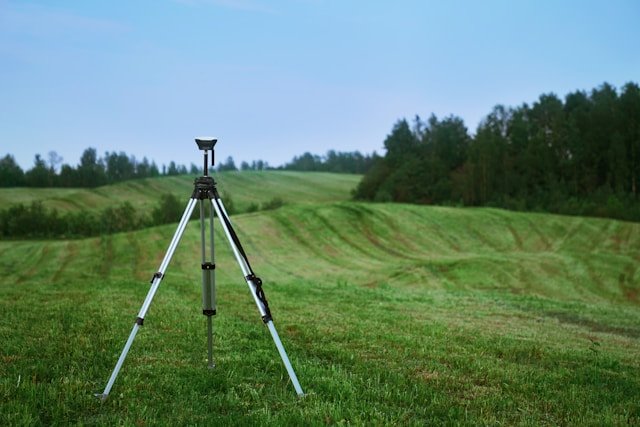In this article, we’ll walk you through everything you need to know about a registered survey, including why it’s important, how the survey process works, and what to expect when a real estate firm is involved in the acquisition and development of land. Whether you’re a landowner, buyer, or just curious, this guide will help you understand the ins and outs of registered surveys and how they protect your investment.
What Is a Registered Survey
A registered survey is an important legal document that outlines a parcel’s exact boundaries and location. Prepared by a licensed surveyor and registered with the government, it includes a detailed map, coordinates, and other essential information that confirms the property’s dimensions. Essentially, it serves as an official record that helps prevent disputes over land ownership by clearly defining property boundaries.
See>>> Questions to Ask When Buying Land in Nigeria
Steps in Acquiring Land Returned to a Community
When land is returned to a community by the government, a structured process must be followed to ensure proper ownership transfer and development. Here’s how it works:
1. Community Land Release and Agreement
When a community successfully applies for the release of land from government acquisition, they gain the freedom to use the land as they see fit.
2. Real Estate Firm’s Involvement
3. Involvement of a Licensed Surveyor

Next, a licensed surveyor is brought in to conduct an accurate survey of the land. The surveyor’s role is to precisely measure and map out the property, clearly defining the boundaries. This step is vital to avoid any future disputes and to establish a legal record of the land’s specifics.
4. Precision Coordinate Mapping
The surveyor uses advanced tools to record the exact coordinates of the land. These geographical points define the precise location of the property and are essential for both legal documentation and developmental planning.
5. Creation of Detailed Maps and Records
After gathering the coordinates, the surveyor creates a comprehensive map that details the land’s boundaries, size, and location. This information is then compiled into the registered survey document, forming a legal reference for the property.
6. Official Registration of the Survey
The completed survey is submitted to the appropriate government authorities for registration. This step gives the survey its official status, making it a legally recognized document that can be used in court and ensures the property is recorded in government databases. As it stands, the land is now the property of the real estate firm
7. Land Division and Preparation of Legal Documents
With the registered survey in place, the real estate firm can proceed to divide the land if necessary and draft a deed of assignment. This deed is a legal document that transfers ownership from one party to another, such as from the community to the firm or from the firm to individual buyers.
8. Ownership Transfer via Deed of Assignment

The final step in the process is the execution of the deed of assignment, where the transfer of ownership is formalized. This document is signed by all involved parties and registered with the government, giving the new owner full legal rights to the land.
See>>> Understanding Certificate of Occupancy (C of O) and Its Types
Is a Registered Survey Equivalent to a Land Title?
No, a registered survey is not the same as a land title. A land title is a legal document that proves ownership of a piece of land, whereas a registered survey only defines the land’s boundaries and location. However, a registered survey is often necessary when obtaining a land title, as it provides the details the title will cover.
The Importance of a Registered Survey for Landowners
A registered survey is indispensable for anyone buying or developing land. It ensures that you have an accurate understanding of your property’s boundaries and protects you from potential legal disputes. Without a registered survey, you risk facing challenges related to property lines or even losing part of your land. In summary, a registered survey provides both legal security and peace of mind, making it a critical element in any land transaction

